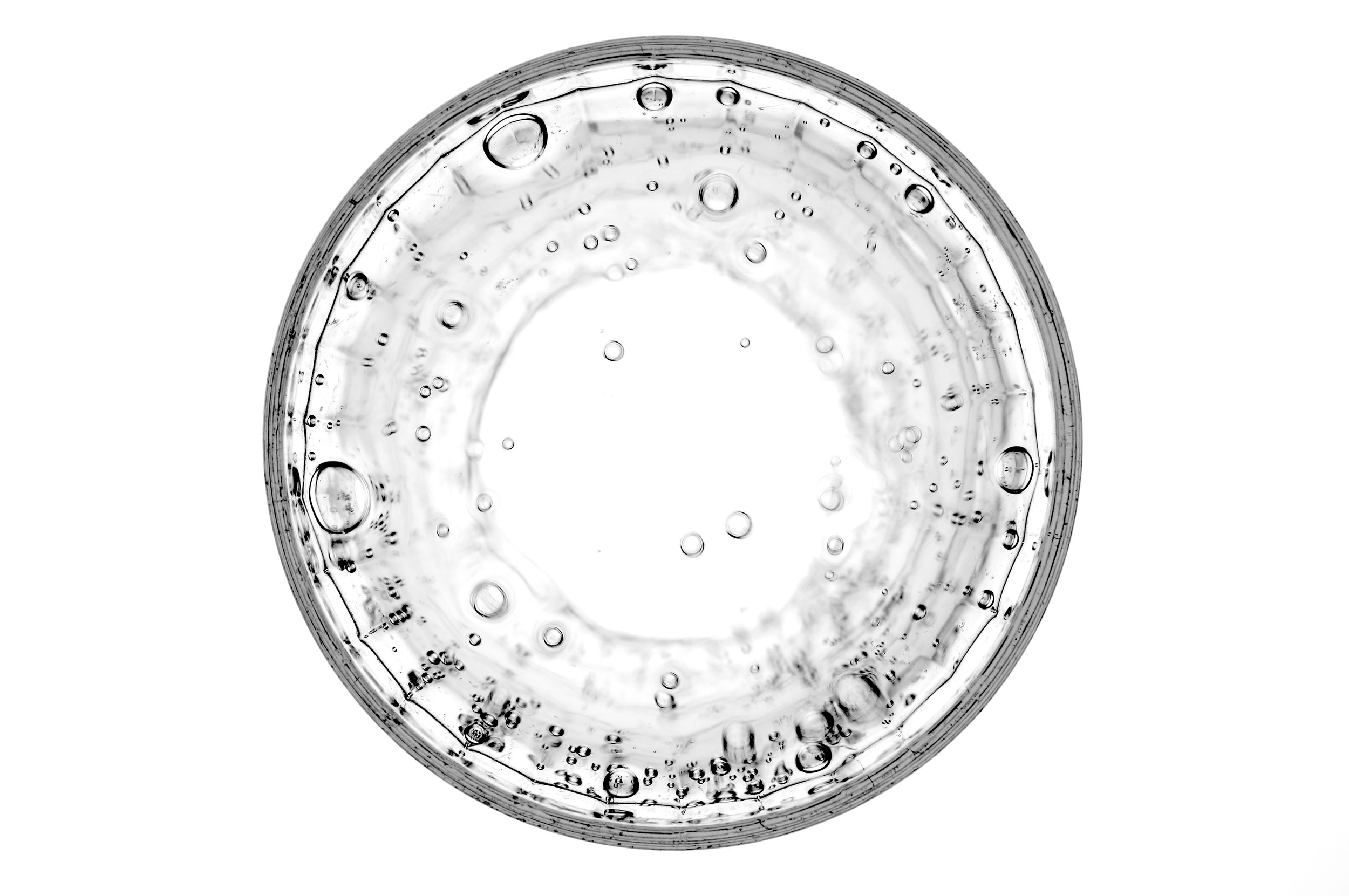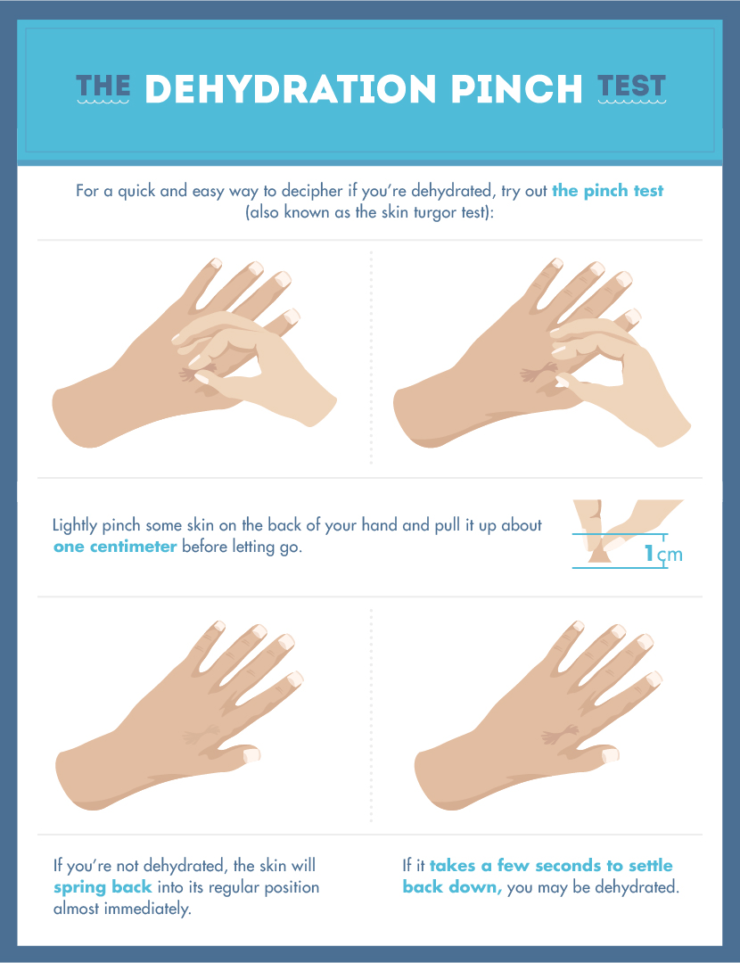We are made up of roughly 45-60 percent water and how much you need to drink each day depends on a number of factors such as:
age and gender
body type and composition
activity intensity and duration
sweat rate
stress
illness and inury
climate
supplements
So, whether you’re sitting at as desk all day, getting multiple workouts in, headed out for a hike, recovering from an injury, or relaxing in the sun on vacation, it’s always important to hydrate properly and recognize when you may or may not be getting enough in.
How Much Do You Need To Be Drinking
A good general recommendation is about half your body weight in ounces.
That may sound like a lot if you're someone who currently only drinks a glass here and there, but as you start to become more aware, you'll be able to fine-tune how much you drink and when. Paying attention to your urine, your skin, how many glasses you're consuming each day, and the foods you're eating, will help you better understand your body and how it's responding.
And just in case you're thinking you need to go pound 12 glasses of water, your intake doesn’t come only from drinking water. It also makes up your coffee, tea, milk and nut milks, and certain solid foods such as watermelon, lettuces, cucumber, broccoli, etc. With thirst and awareness as a guide, we as humans are generally able to stay pretty well hydrated, but for those not particularly aware of the body's messaging, below are just a few reasons it's so important to drink up and tips for ensuring you're taking care of your body for the long haul.
Why Hydration and Water is Important
Water is the primary building block of cells
Regulates internal body temperature
Metabolizes proteins and carbohydrates
It is the primary component of saliva and is used in digestion and swallowing
Lubricates joints and acts as a shock absorber
Insulates the brain, spinal cord, organs, and fetus
Flushes waste and toxins from the body
Carries oxygen and nutrients to cells
Promotes healthy weight management
Boosts the immune system
Tips for Staying Hydrated
ALWAYS CARRY A WATER BOTTLE: Keep a water bottle in your bag, in your car and at the office. You can never be too prepared. Refilling your water bottle at the office also requires you to get up and walk around which helps prevent long periods of sitting when you get caught up in that pile of emails.
DRINK OFTEN: Keeping your water bottle handy helps with this, but you have to remind yourself to actually use it. Rather than chugging water infrequently whenever you remember, drink consistently throughout the day to continually hydrate.
DRINK WHEN YOU WAKE UP: After a long (or short) night's sleep, you'll want to rehydrate with a glass of water. My recommendation: drink 8 oz water with the juice of half a lemon to stimulate your liver and digestion, flush toxins and boost metabolism before anything else enters your body.
SET AN ALARM: If you tend to lose track of the last time you drank, set a timer or alert on your phone every 30 minutes as a reminder to take a sip.
REPLACE ELECTROLYTES: For workouts less than an hour, this usually isn't an issue, but if you sweat a lot or if you're doing a long workout, it's important to replenish your lost electrolytes (sodium, potassium, calcium, magnesium) as well as water. You can do this through food in your post workout meal and adding salt to foods (1/4 - 1/2 tsp), but the easiest way is to add an electrolyte sports drink to your water bottle during your longer workouts.
POST WORKOUT MEALS: Consume nutrient dense foods and drink water after exercise to assist in the re-hydrating process.
BE AWARE OF THIRST CUES ALWAYS.
How to Test Your Hydration
Dehydration can be detected primarily by paying attention to symptoms. And if you're thirsty, you're on your way to dehydration.
Another way to test is through skin elasticity. Pinch the back of your hand and lift the skin. If a fold of pinched skin returns to its original shape especially slow (called tenting), then you may be dehydrated.
And the best way in my opinion to check for hydration levels is to pay attention to your urine. If your urine is transparent, you may be drinking too much water. Pale straw to transparent yellow is observed as normal hydration levels. And if you are seeing dark yellow, you may be on your way to dehydration or already dehydrated and should drink water soon. Anything beyond that, schedule to see your doc.
Early signs of dehydration:
thirst
dry mouth, eyes and nose
decrease in energy
fatigue and weakness
increased body temperature
muscle cramping
headaches
nausea
dark urine with less volume (note that certain supplements and vitamins, such as B12, can cause urine to be bright yellow, which may not be indicative of dehydration)
Severe dehydration can also include:
muscle spasms
vomiting
dark urine
decrease in performance
vision problems
loss of consciousness
kidney and liver failure
The remedy for dehydration is simple: Drink water. It’s better to take frequent sips of water rather than chugging larger amounts infrequently. Adding in sport/energy drinks can help restore carbohydrates and electrolytes and pay attention to that pee!





